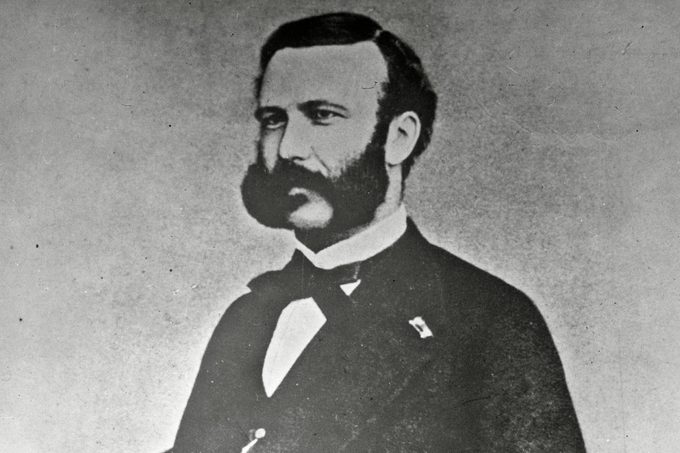The Heart-Wrenching Moment That Led to the Idea of the Red Cross
Updated: May 27, 2022

From tragedy, sprung hope.
The Red Cross, now approaching its 138th year in existence, is known for performing some of the most heroic acts in the world, but its origin story is far from rosy. Before we start at the beginning, let’s cover the basics:
What is the Red Cross?
Red Cross societies exist in 190 countries all over the world. Their mission: “The American Red Cross prevents and alleviates human suffering in the face of emergencies by mobilizing the power of volunteers and the generosity of donors.” This organization bands together willing volunteers with worldwide issues in need of them and provides a channel for anyone to help out in times of crisis.
Who began the Red Cross and why?
In 1860, Swiss businessman and social activist, Jean Henri Dunant, witnessed atrocities of war, and countries not prepared or equipped to ease the suffering of those who had been injured in the Battle of Solferino during the second War of Italian Independence. Dunant organized a group of volunteers to help bring water and food to the injured, to assist with medical treatment, or write letters to the families of those who were dying. After that moment, he knew that more had to be done, and he wrote the book, A Memory of Solferino, which urged the public to create an organization which would assist the wounded, regardless of which side they fought for during times of war. His writing inspired countless others to rally behind him in the creation of the International Federation of the Red Cross.
Why was it founded?
On June 24, 1859, Emperors Napoleon III and Franz Joseph I went head to head in what would later be known as the Battle of Solferino, commanding a combined total of about 270,000 troops onto the field for a single day of battle. When all was said and done, nearly 40,000 were either dead, injured, or missing, many of whom were simply left to die on the battlefield. In the days that followed, spectators crowded the fields, looking for loved ones, scavenging items they could sell, or simply taking in the horrors of the battle, including Jean Henri Dunant, who was traveling in the region to try to gain a meeting with the French emperor to discuss a business opportunity in French-controlled Algeria. Dunant describes some of the horrors that he saw that day, such as amputations without anesthetic, and groaning, fly-covered men who were left for dead. “Some, who had gaping wounds already beginning to show infections… begged to be put out of their misery, and writhed with faces distorted in the grip of the death struggled,” he wrote. What he saw that day stayed with him for the rest of his life.
What does the Red Cross do now?
The modern-day Red Cross is much more than a mission to nurse soldiers during wartime. Due in large part to Clara Barton’s direction of the American Red Cross in the late 1800s, the group began to devote itself largely to disaster relief, and epidemic treatment. This effort continues to this day. Another large change has been the variation of the symbol, the red cross. Given the association of the cross with Christianity, over 30 Islamic nations use a red crescent, and Israels’s national first-aid society uses either a Star of David (for domestic aid) or a red crystal for international operations. Each of these symbols has been approved during the Geneva Conventions and under international law, it is illegal to deliberately target these humanitarian workers—however, in the last several decades, there have been dozens of instances of intentional targeting of Red Crescent and Red Cross volunteers.
During the coronavirus pandemic, the Red Cross is, among other things, still distributing food, connecting families, and supporting quarantine shelters. One of the easiest ways you can help the Red Cross is to make sure you are able to donate blood and make an appointment at the Red Cross website. But, donating blood isn’t the only way you can help out—the Red Cross also encourages donating your time if you can.



